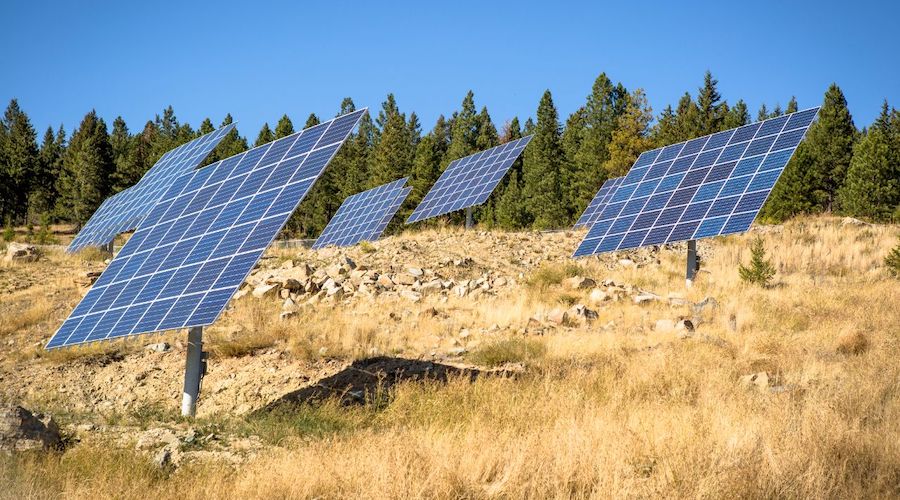
Mining accounts for an estimated 4% to 7% of global emissions, and the industry has only just begun to set emissions reduction targets.
One year ago, McKinsey noted that targets published by mining companies ranged from reductions of 0% to 30% by 2030 – reductions that are “far below Paris Agreement goals,” the firm noted in a report.
Teck has pledged to reduce the carbon intensity of its operations by 33% over the next nine years
As Canada’s largest metallurgical coal producer, British Columbia-based Teck Resources Ltd. (TSX:TECK.B) has a significant carbon profile.
The company produced 3.2 megatonnes of CO2 equivalent in 2019 across its mining operations in Canada, the U.S. and Chile, according to its own sustainability report.
Teck has pledged to reduce the carbon intensity of its operations by 33% over the next nine years. It is also aiming for carbon neutrality by 2050.
“One of the questions we see quite a bit about our decarbonization pathway is, ‘How much is this going to cost a company like Teck?’” Chris Adachi, the miner’s manager of sustainability and climate change, said in a presentation at the Prospectors & Developers Association of Canada’s annual convention.
“What I like to reflect on people is a lot of these actions aren’t necessarily costly,” Adachi said. “In some cases, they’re actually cost savings. To me, it’s really a matter of timing – when are you able to pursue those carbon reduction technologies in a way that is commercially competitive, but that doesn’t wait too long, because we need to start tackling emissions as soon as possible.”
Part of the company’s carbon reduction plan is to use clean sources of energy in its mining operations. While Canadian operations have access to low-carbon power – which reduces the carbon footprint of Teck’s B.C. operations, relative to other coal-producing mines – the company’s mines in Chile still get much of their power from fossil fuels.
By 2030, Teck aims to have its Chilean operations fully running on clean energy and expects to be halfway to that goal by 2025.
A company affiliate in Chile has signed an agreement with AES Corp. (NYSE:AES) to provide 100% renewable power to its Carmen de Andacollo copper mine.
Under the agreement, AES will provide the mine’s operations with 72 megawatts of renewable wind, solar and hydro power.
The renewable power will offset an estimated 200,000 tonnes of greenhouse gas emissions currently produced by burning fossil fuels.
“This agreement takes Teck a step closer to achieving our sustainability goals, while also ensuring a reliable, long-term clean power supply for [the Carmen de Andacollo mine] at a reduced cost to Teck,” company CEO Don Lindsay said in a news release.
Mining industry emissions can also be reduced by electrifying mine trucks and equipment, an option made possible by technological advances in transportation.
While fossil fuels are expected to remain a key transportation power source for the foreseeable future, Teck is accelerating the company’s adoption of zero-emissions transportation alternatives, with plans to integrate electric, hybrid and hydrogen-fuelled vehicles into its operations.
The company’s electric bus pilot project in B.C.’s Elk Valley in 2019 was the Canadian mining industry’s first use of an electric passenger bus for employee transport.
“What’s critical about this is it’s a step in learning the technology, but it’s also about changing our culture and getting people comfortable with these different technologies,” Adachi said. “So we think this is really critical in setting us up for success down the road.”
Teck wants to displace the equivalent of 1,000 internal combustion engines with zero-emissions alternatives by 2025.
– With files from Nelson Bennett
(This article first appeared in Business in Vancouver)




